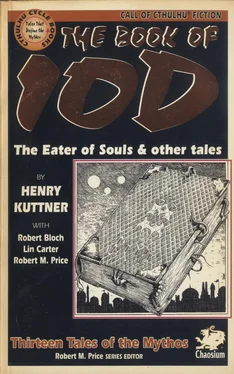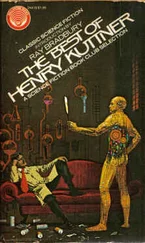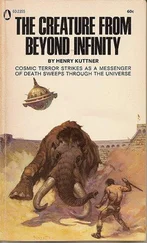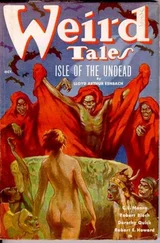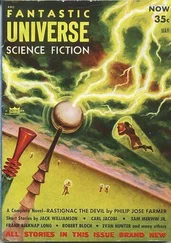Henry Kuttner - The Book of Iod
Здесь есть возможность читать онлайн «Henry Kuttner - The Book of Iod» весь текст электронной книги совершенно бесплатно (целиком полную версию без сокращений). В некоторых случаях можно слушать аудио, скачать через торрент в формате fb2 и присутствует краткое содержание. Год выпуска: 1995, ISBN: 1995, Издательство: Chaosium, Жанр: Ужасы и Мистика, на английском языке. Описание произведения, (предисловие) а так же отзывы посетителей доступны на портале библиотеки ЛибКат.
- Название:The Book of Iod
- Автор:
- Издательство:Chaosium
- Жанр:
- Год:1995
- ISBN:9781568820453
- Рейтинг книги:5 / 5. Голосов: 1
-
Избранное:Добавить в избранное
- Отзывы:
-
Ваша оценка:
- 100
- 1
- 2
- 3
- 4
- 5
The Book of Iod: краткое содержание, описание и аннотация
Предлагаем к чтению аннотацию, описание, краткое содержание или предисловие (зависит от того, что написал сам автор книги «The Book of Iod»). Если вы не нашли необходимую информацию о книге — напишите в комментариях, мы постараемся отыскать её.
The Book of Iod — читать онлайн бесплатно полную книгу (весь текст) целиком
Ниже представлен текст книги, разбитый по страницам. Система сохранения места последней прочитанной страницы, позволяет с удобством читать онлайн бесплатно книгу «The Book of Iod», без необходимости каждый раз заново искать на чём Вы остановились. Поставьте закладку, и сможете в любой момент перейти на страницу, на которой закончили чтение.
Интервал:
Закладка:
“Coryllis.”
“’Ware, Elak!” Lycon shouted.
Elak turned to see the little man’s sword flash out, shearing a questing tentacle in two. The severed end dropped, writhing and coiling in hideous knots. The frightful devil-masks of monsters glared into Elak’s eyes. The children of Dagon came sweeping in a resistless rush, cold eyes glazed and glaring, tentacles questing, iridescent bodies shifting and pulsing like jelly — and Elak and Lycon and the girl, Coryllis, were caught by their fearful wave and forced back, up the staircase.
Snarling inarticulate curses, Lycon swung his sword, but it was caught and dragged from his hand by a muscular tentacle. Elak tried to shield Coryllis with his own body; he felt himself going down, smothering beneath the oppressive weight of cold, hideous bodies that writhed and twisted with dreadful life. He struck out desperately — and felt a hard, cold surface melting like snow beneath his hands.
The weight that held him down was dissipating — the things were retreating, flowing back, racing and flopping and tumbling down the stairs, shrieking an insane shrill cry. They blackened and melted into shapeless puddles of slime that trickled like a little gray stream down the stairway… .
Elak realized what had happened. A rose-red light was glowing in the air all about him. The wizard had repaired his magic globe, and the power of its rays was destroying the nightmare menace that had crept up from the deeps.
In a heartbeat it was over. There was no trace of the horde that had attacked them. Gray puddles of ooze — no more. Elak realized that he was cursing softly, and abruptly changed it to a prayer. With great earnestness he thanked Ishtar for his deliverance.
Lycon recovered his sword, and handed Elak his rapier. “What now?” he asked.
“We’re off! We’re taking Coryllis with us — there’s no need to linger here. True, we helped the wizard — but we fought him first. He may remember that. There’s no need to test his gratefulness, and we’d be fools to do it.”
He picked up Coryllis, who had quietly fainted, and quickly followed Lycon down the steps. They hurried across the great room and into the depths of the corridor beyond.
And five minutes later they were sprawled at full length under a tree in one of San-Mu’s numerous parks. Elak had snatched a silken robe from a balcony as he passed beneath, and Coryllis had draped it about her slim body. The stars glittered frostily overhead, unconcerned with the fate of Atlantis — stars that would be shining thousands of years hence when Atlantis was not even a memory.
No thought of this came to Elak now. He wiped his rapier with a tuft of grass, while Lycon, who had already cleaned his blade, stood up and, shading his eyes with his palm, peered across the park. He muttered something under his breath and set off at a steady lope. Elak stared after him.
“Where’s he going? There’s a — by Ishtar! He’s going in a grog shop. But he has no money. How—”
A shocked thought came to him, and he felt hastily in his wallet. Then he cursed. “The drunken little ape! When he slashed my bonds in the wizard’s palace, he stole the purse! I’ll—”
Elak sprang to his feet and took a stride forward. Soft arms gripped his leg. He looked down. “Eh?”
“Let him go,” Coryllis said, smiling. “He’s earned his mead.”
“Yes — but what about me? I—”
“Let him go,” Coryllis murmured….
And, ever after that, Lycon was to wonder why Elak never upbraided him about the stolen purse.
The Invaders
by Henry Kuttner
Frank Belknap Long’s “The Hounds of Tindalos” proved to be quite influential. Lovecraft mentions the uncanny canines in “The Whisperer in Darkness”, and later the Hounds were taken out fora walk by both Brian Lumley and Roger Zelazny. The device of the drug that enables the user to swim backward in the time stream also proved influential. One finds it in this story by Kuttner as well. We will find something similar again in “Hydra.”
Kuttner also has a good bit of fun with his friend Bloch’s Mysteries of the Worm in this story. He notes that “the book’s kept in a vault in the Huntington Library… but I managed to get photostatic copies of the pages I needed… Scarcely anyone in California knows that such a book exists in the Huntington Library.” Of course, there is no De Vermis Mysteriis there or any place else, but Kuttner’s fiction did prove to be strangely prophetic. As it happens, the Huntington Library did acquire a treasure trove of ancient esoteric manuscripts—a complete set of photograph copies of the Dead Sea Scrolls—and few knew of their presence. Though a good three-fourths of the Scroll texts had been published by the 1960’s and ’70’s, the official authorities in Jerusalem kept the remainder under wraps. All scholarly requests for access and plans to publish these texts were quashed by the authorities.
To break this scholarly monopoly, the Huntington Library announced in 1991 that any interested scholar might have access to their set of copies. Since then we have witnessed a firestorm of controversy over the Scrolls, their content, date, authorship, and possible repercussions for the early history of Christianity. Kuttner was more than half right in depicting a secret manuscript kept under wraps at the Huntington Library, as well as the furor that resulted when photocopies were made available!
First publication: Strange Stories, February 1939
“Oh—it’s you,” said Hayward. "You got my wire?”
The light from the doorway of the cottage outlined his tall, lean figure, making his shadow a long, black blotch on the narrow bar of radiance that shone across the sand to where green-black rollers were surging.
A sea bird gave a shrill, eerie cry from the darkness, and I saw Hayward’s silhouette give a curious little jerk.
“Come in,” he said, quickly, stepping back.
Mason and I followed him into the cottage.
Michael Hayward was a writer—a unique one. Very few writers could create the strange atmosphere of eldritch horror that Hayward put into his fantastic tales of mystery. He had imitators—all great writers have—but none attained the stark and dreadful illusion of reality with which he invested his oftentimes shocking fantasies. He went far beyond the bounds of human experience and familiar superstition, delving into uncanny fields of unearthliness. Blackwood’s vampiric elementals, M. R. James’ loathsome liches—even the black horror of de Maupassant’s “Horla” and Bierce’s “Damned Thing”—paled by comparison.
It wasn’t the abnormal beings Hayward wrote about so much as the masterly impression of reality he managed to create in the reader’s mind—the ghastly idea that he wasn’t writing fiction, but was simply transcribing on paper the stark, hellish truth. It was no wonder that the jaded public avidly welcomed each new story he wrote.
Bill Mason had telephoned me that afternoon at the Journal, where I worked, and had read me an urgent telegram from Hayward asking -in fact, begging- us to come at once to his isolated cottage on the beach north of Santa Barbara. Now, beholding him, I wondered at the urgency.
He didn’t seem ill, although his thin face was more gaunt than usual, and his eyes unnaturally bright. There was a nervous tension in his manner, and I got the odd impression that he was intently listening, alert for some sound from outside the cottage. As he took our coats and motioned us to chairs, Mason gave me a worried glance.
Something was wrong. Mason sensed it, I sensed it. Hayward filled his pipe and lit it, the smoke wreathing about his stiff black hair. There were bluish shadows in his temples.
Читать дальшеИнтервал:
Закладка:
Похожие книги на «The Book of Iod»
Представляем Вашему вниманию похожие книги на «The Book of Iod» списком для выбора. Мы отобрали схожую по названию и смыслу литературу в надежде предоставить читателям больше вариантов отыскать новые, интересные, ещё непрочитанные произведения.
Обсуждение, отзывы о книге «The Book of Iod» и просто собственные мнения читателей. Оставьте ваши комментарии, напишите, что Вы думаете о произведении, его смысле или главных героях. Укажите что конкретно понравилось, а что нет, и почему Вы так считаете.
